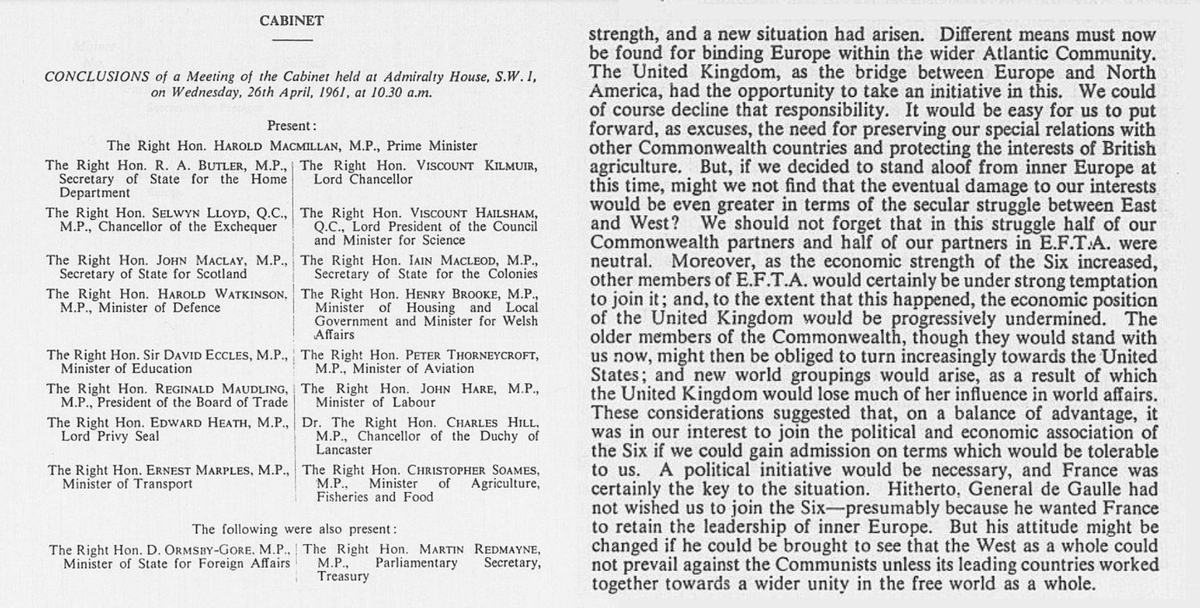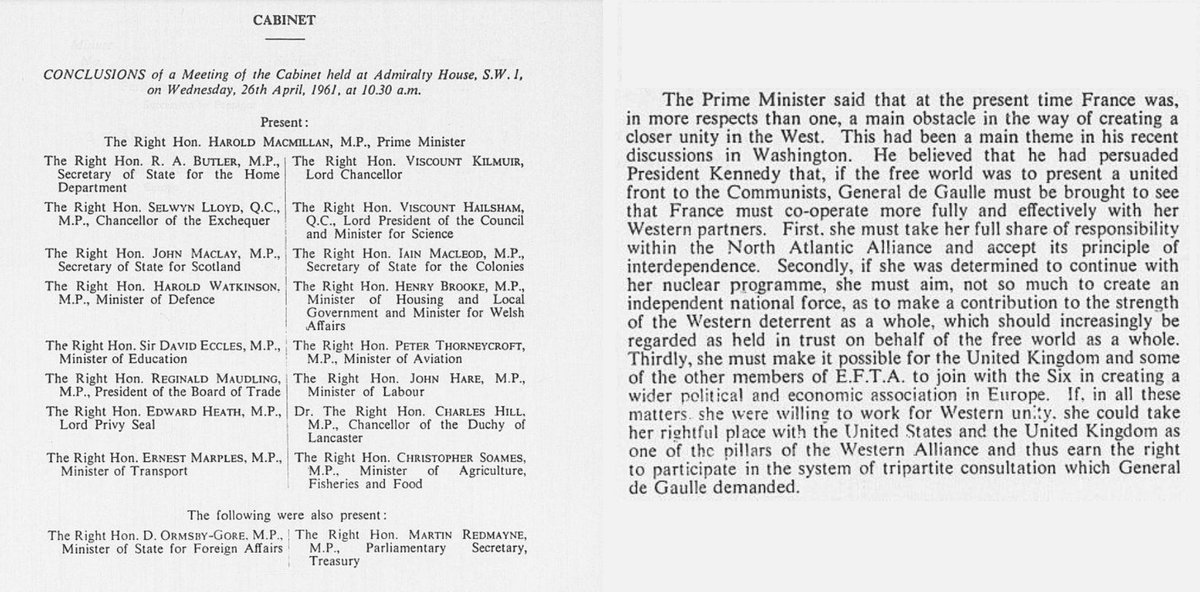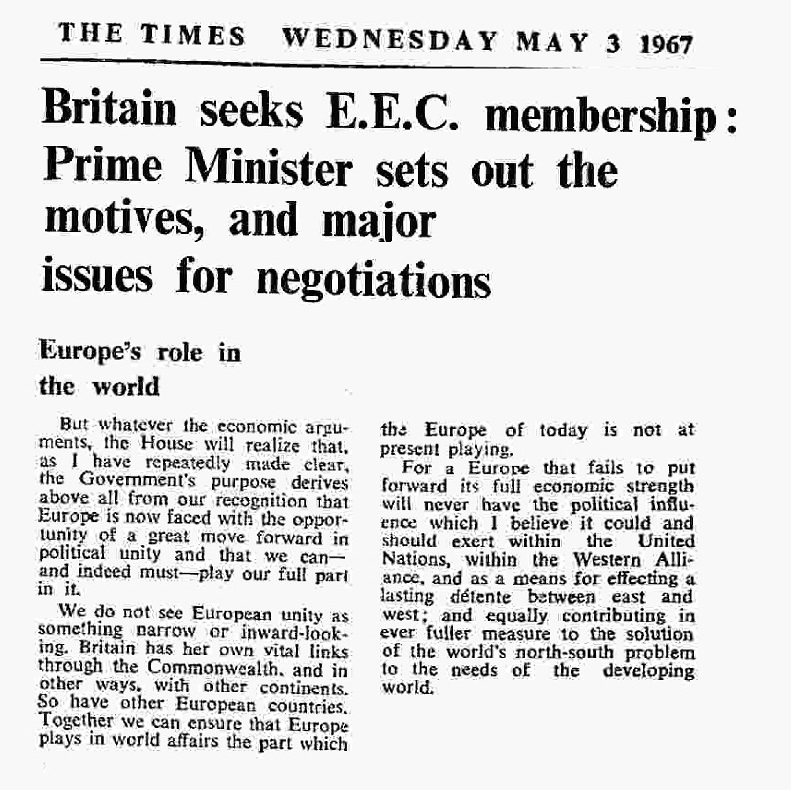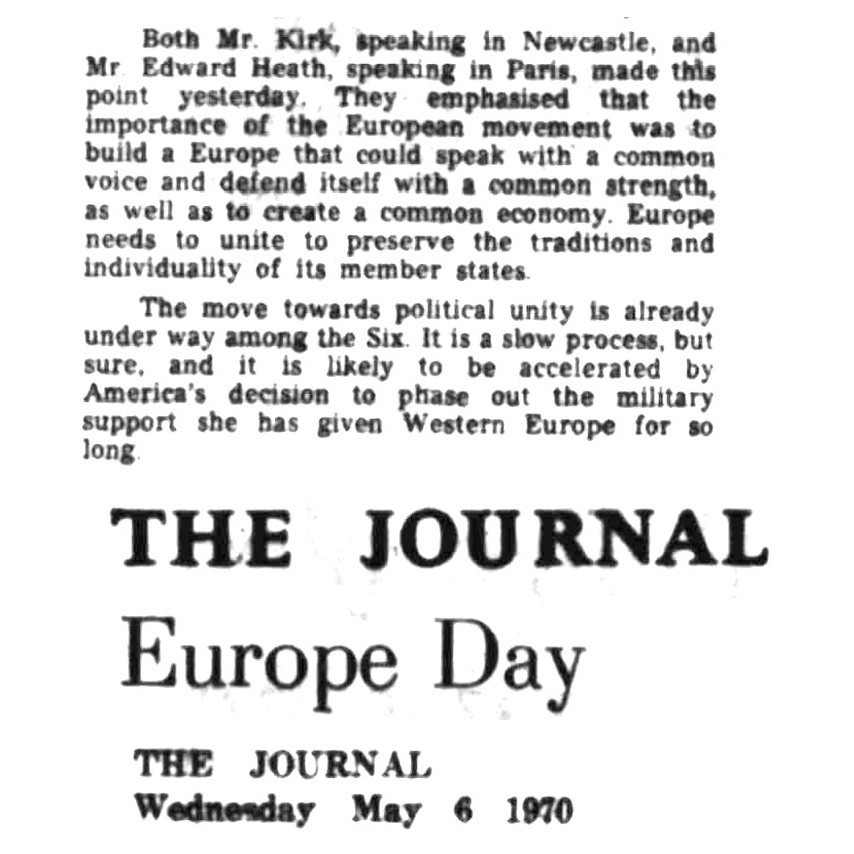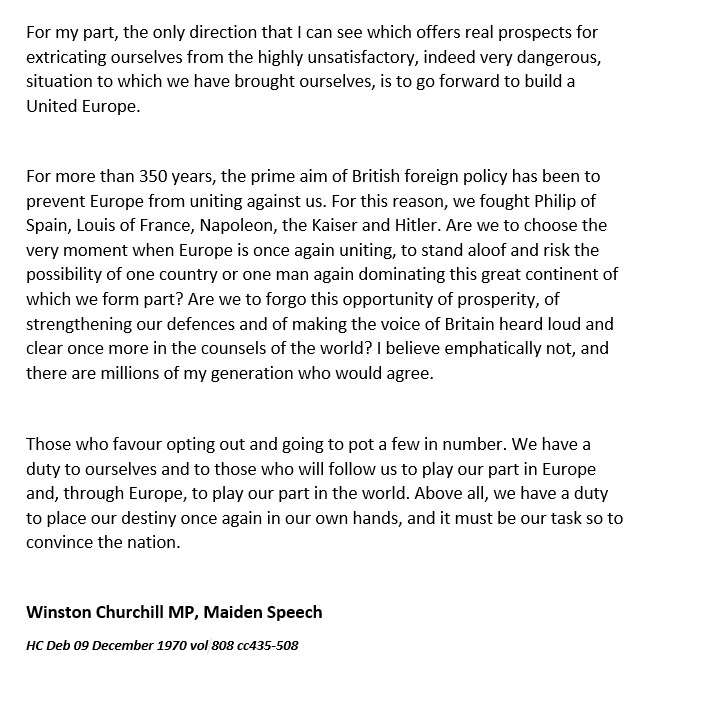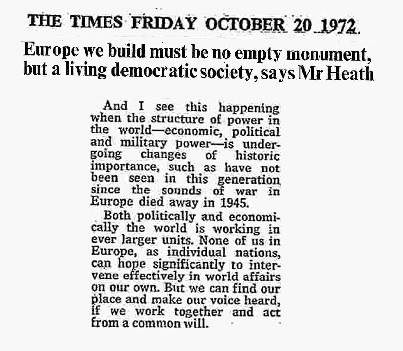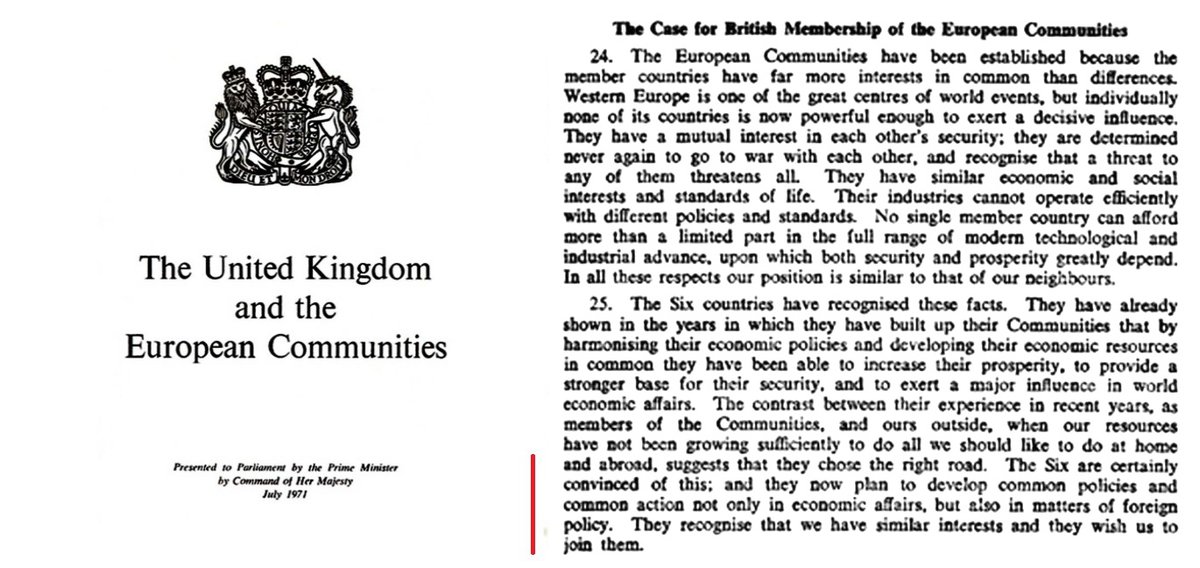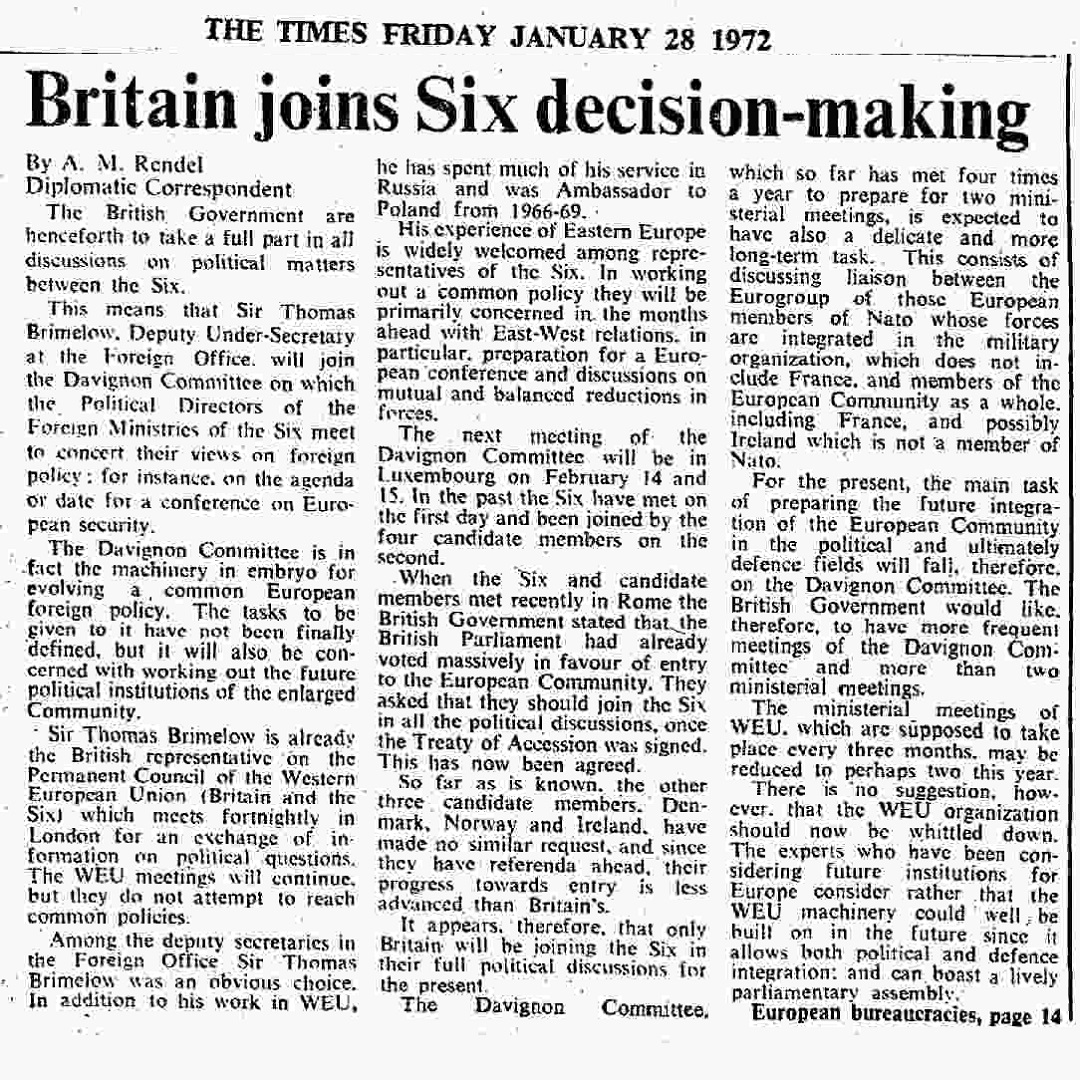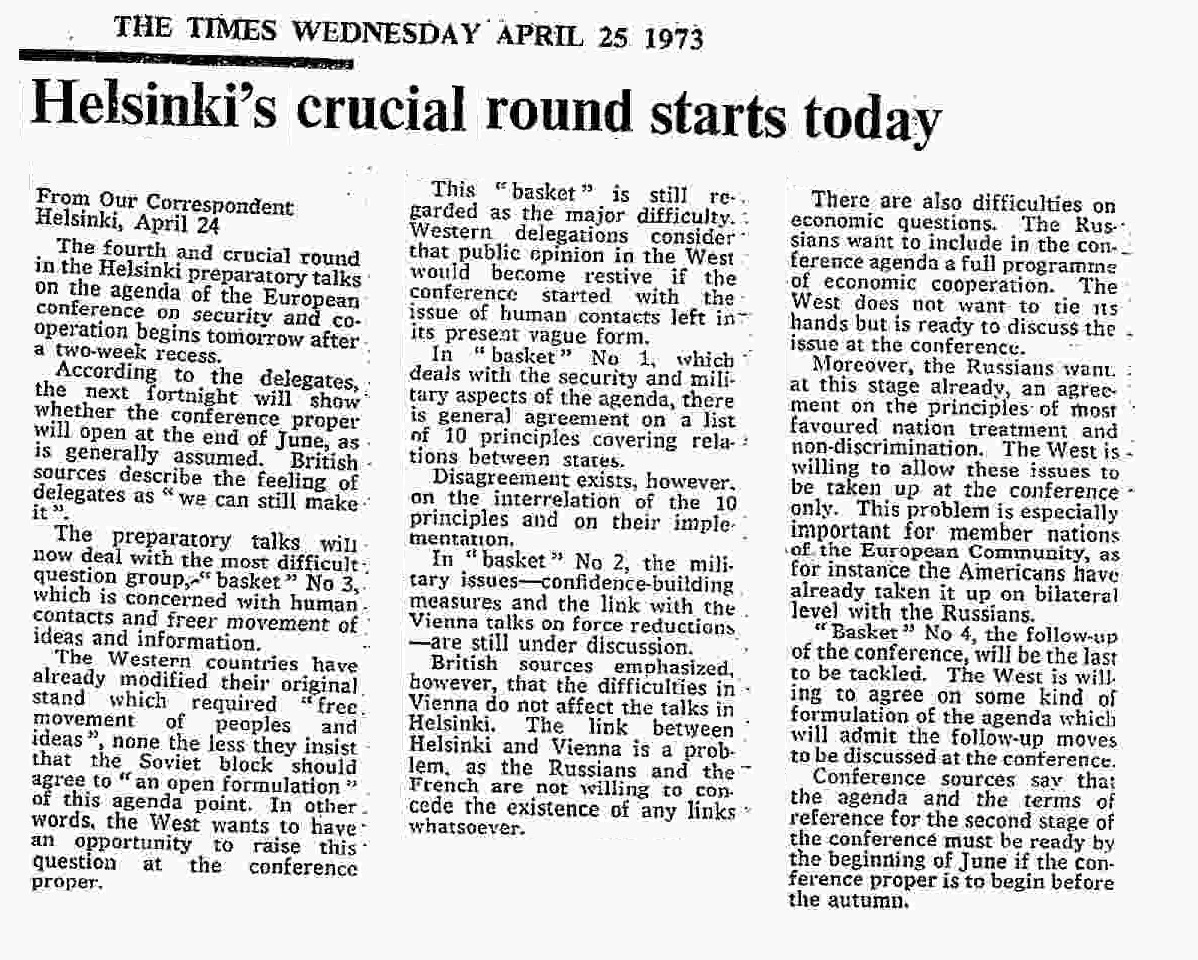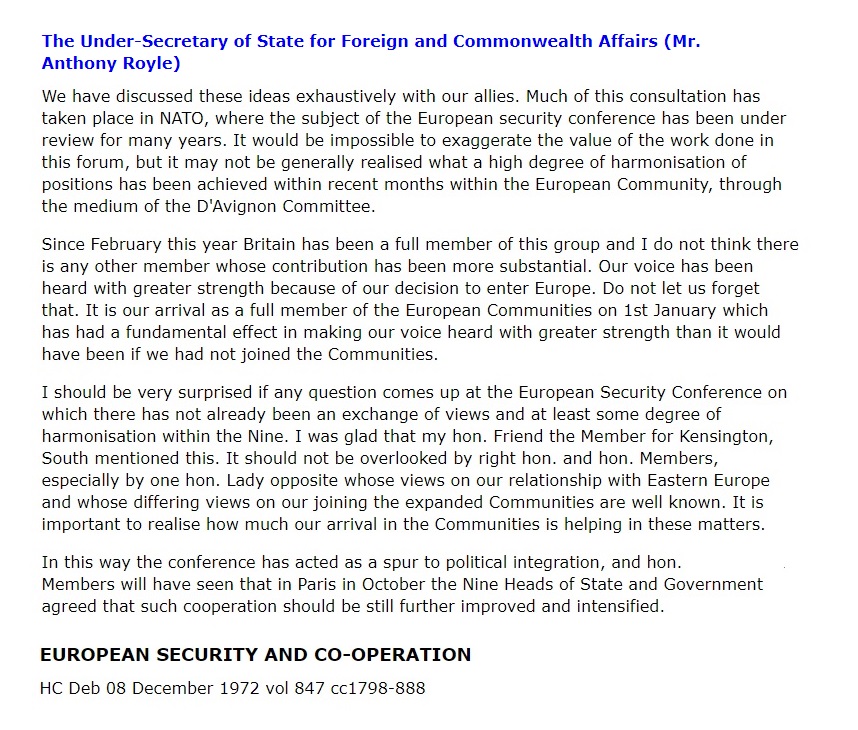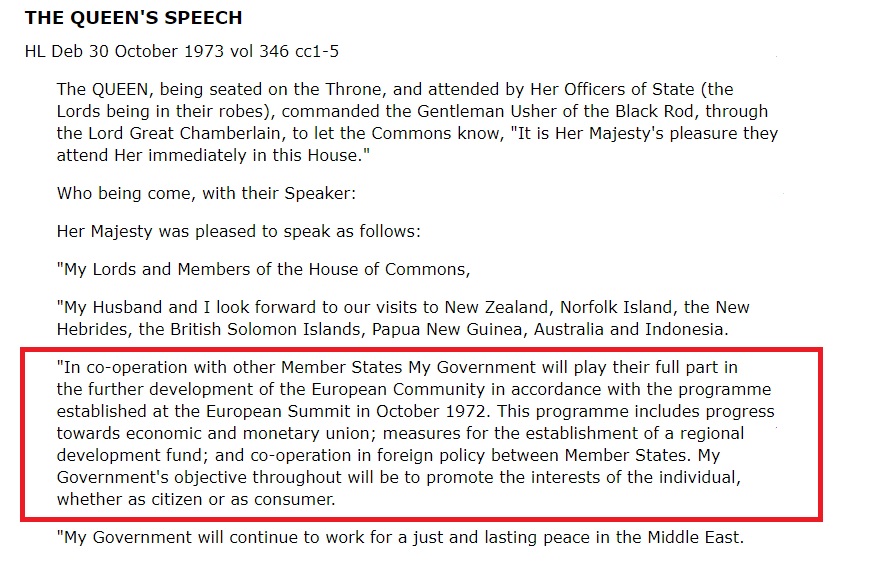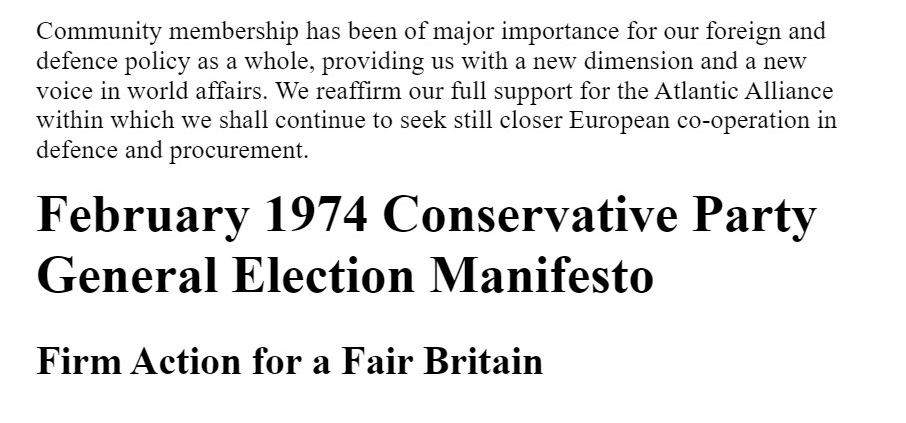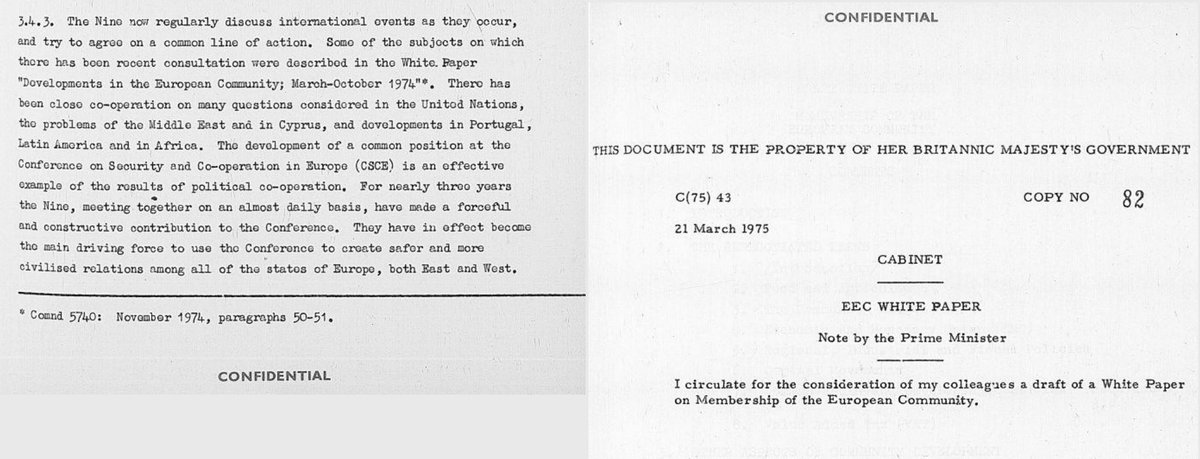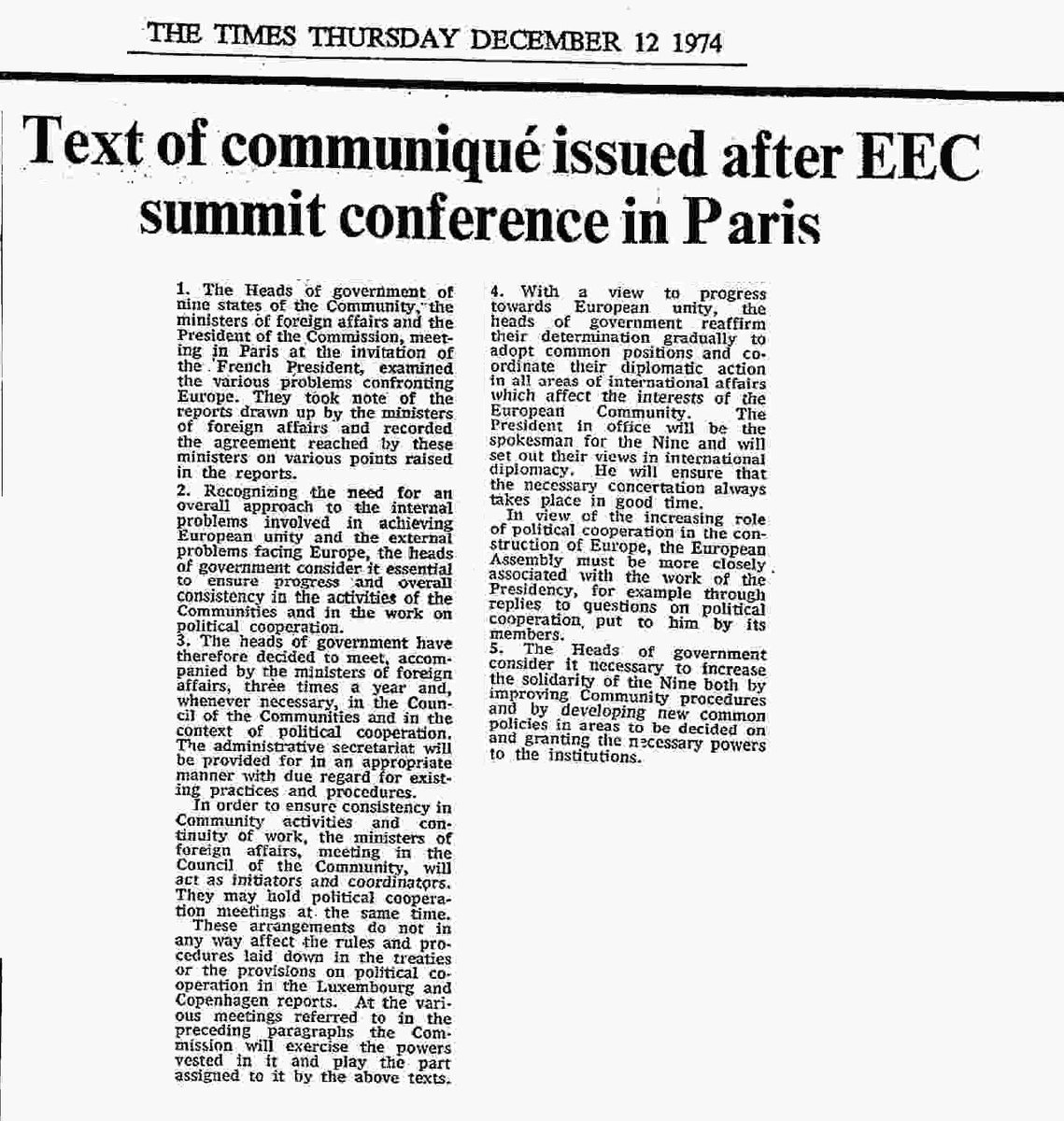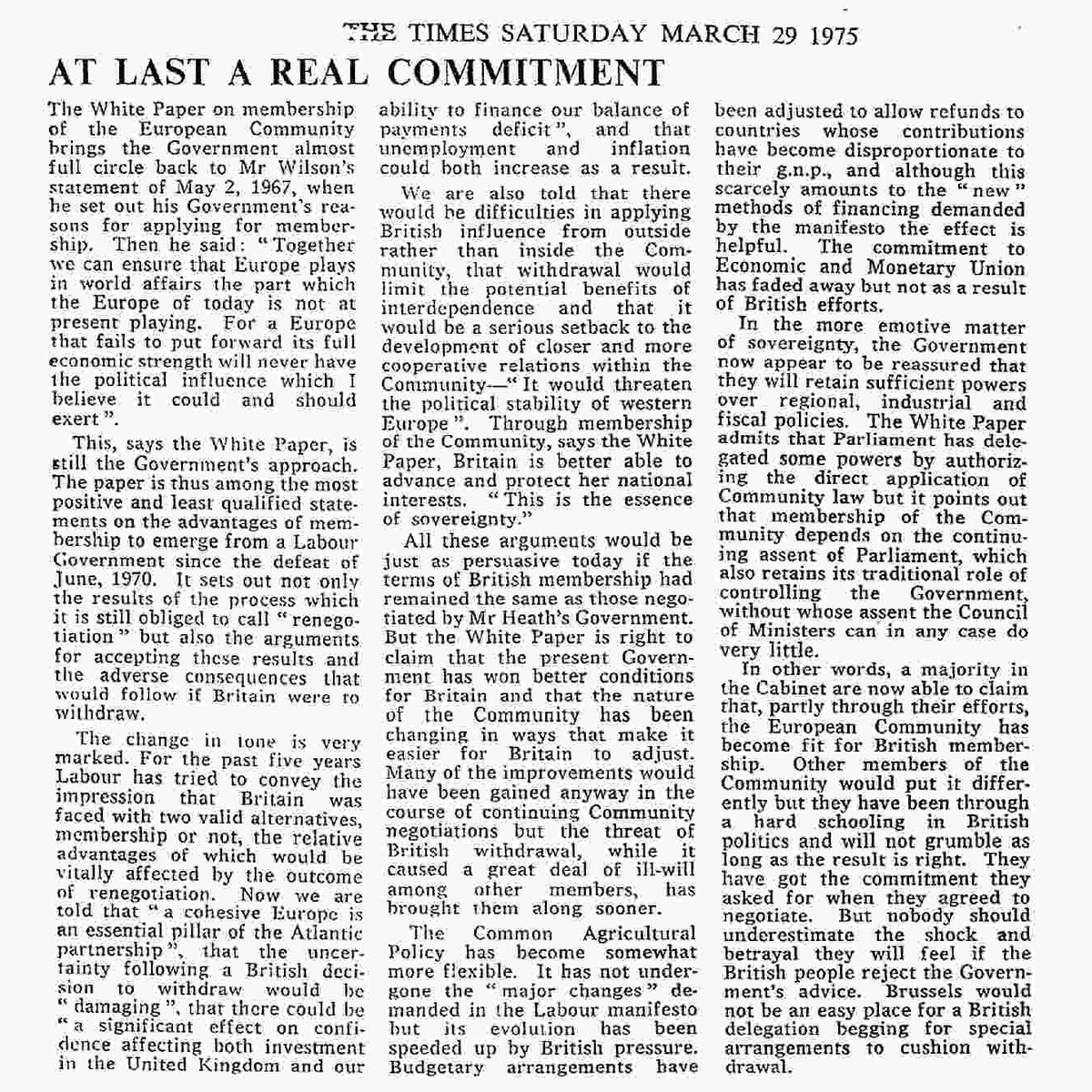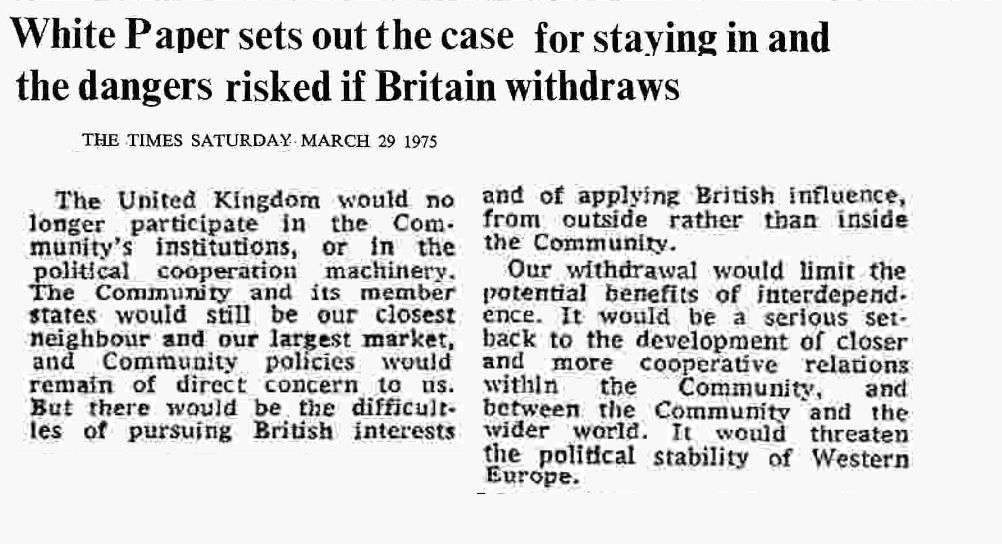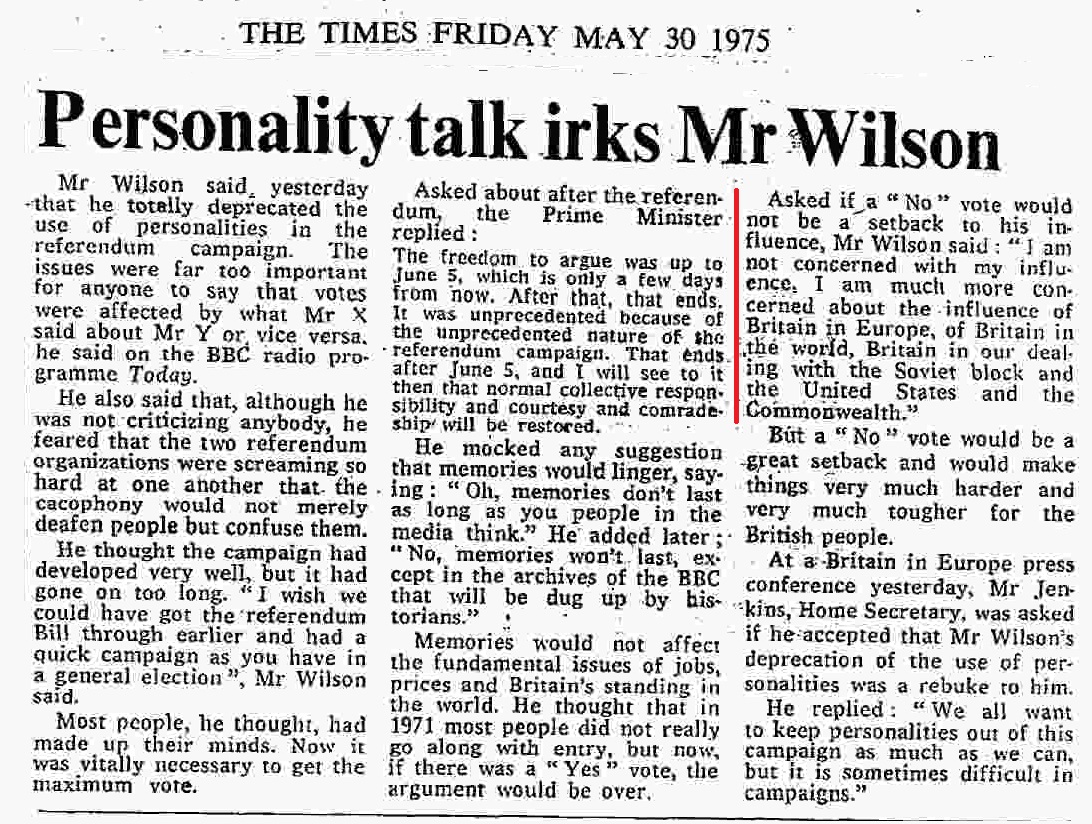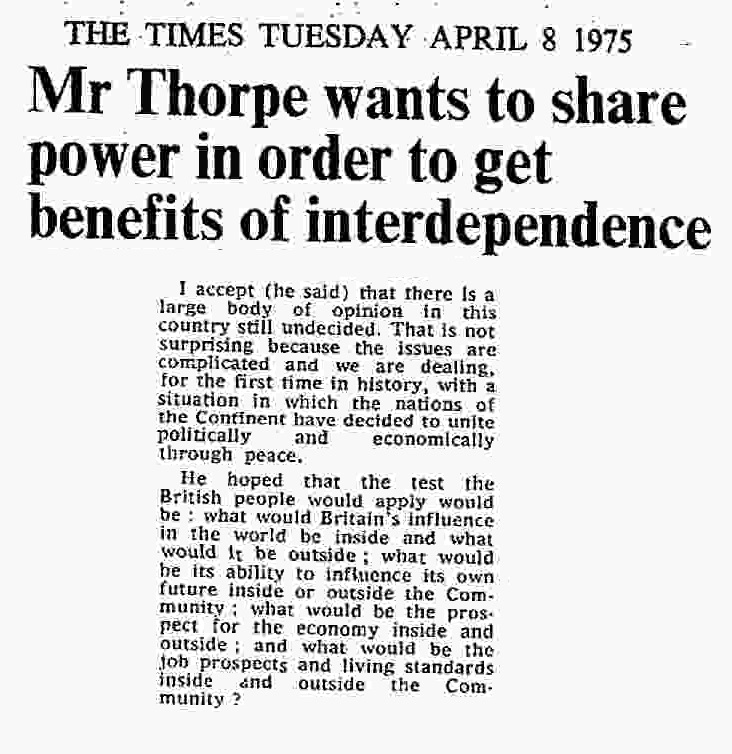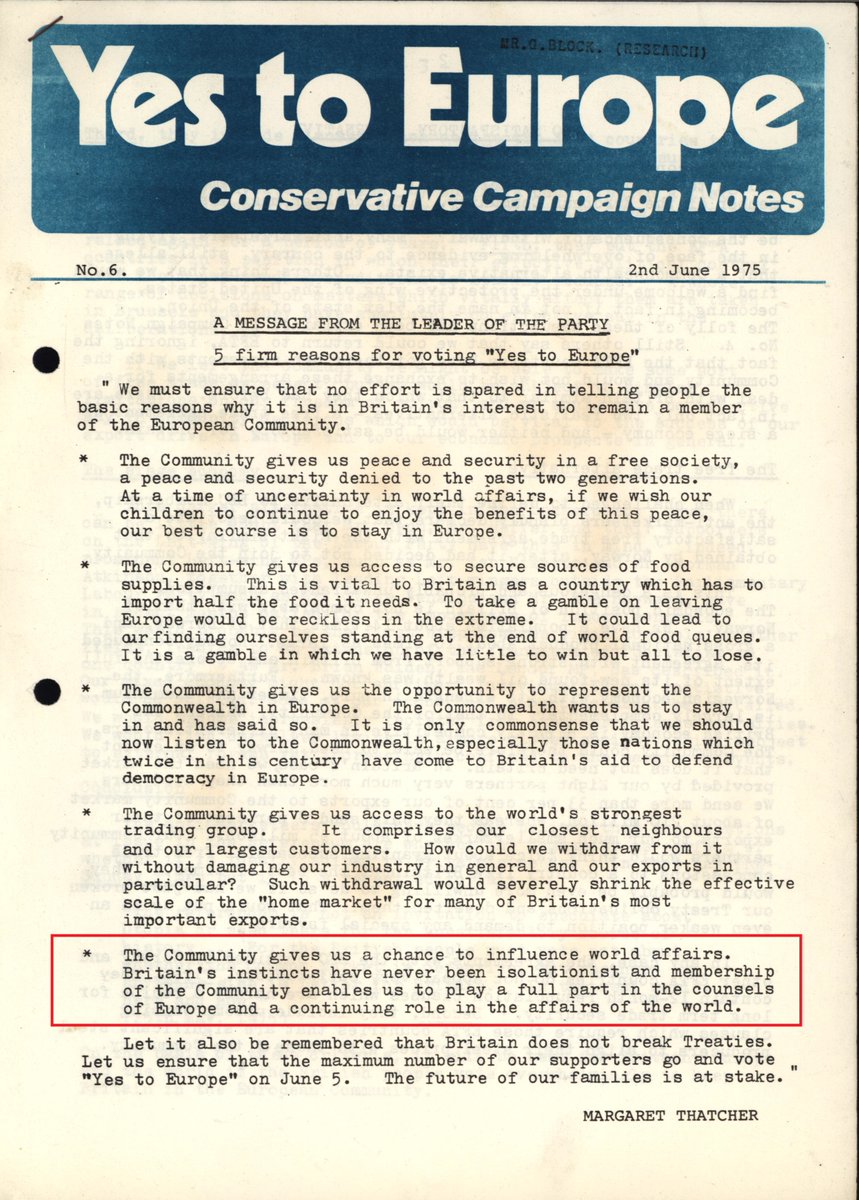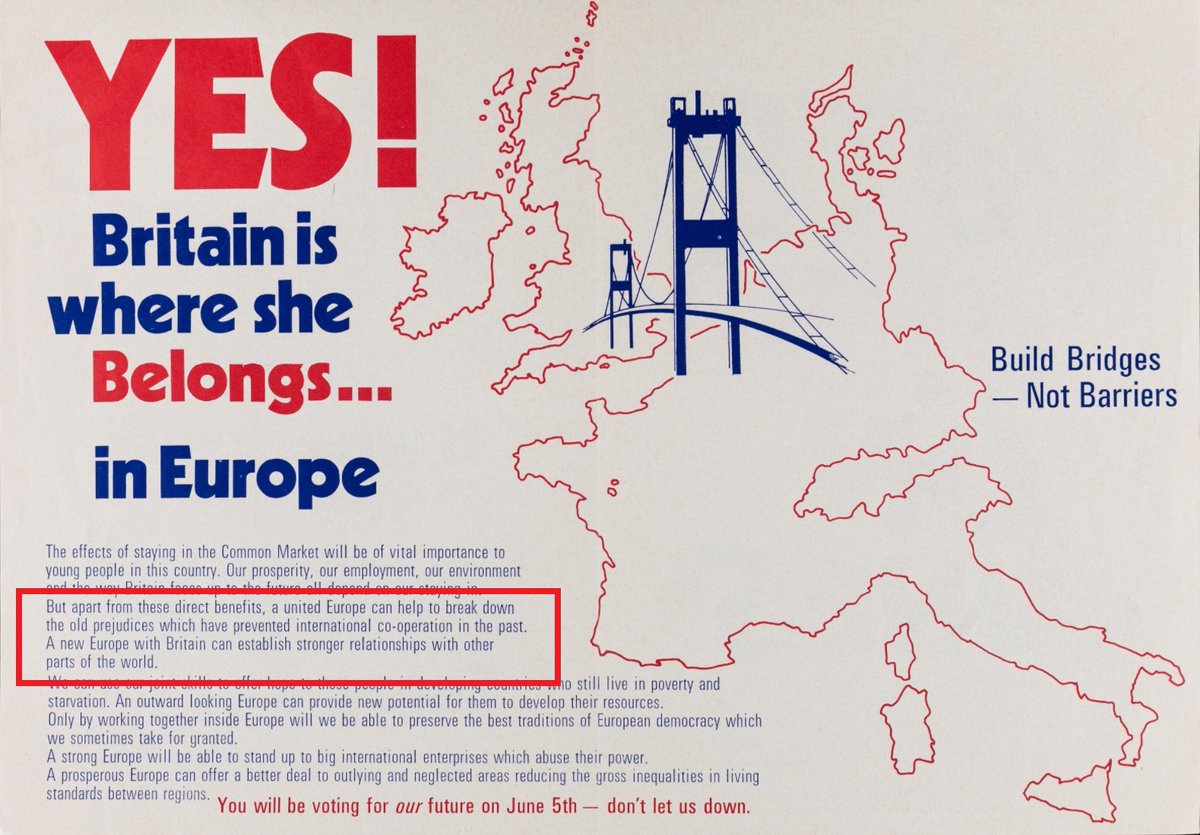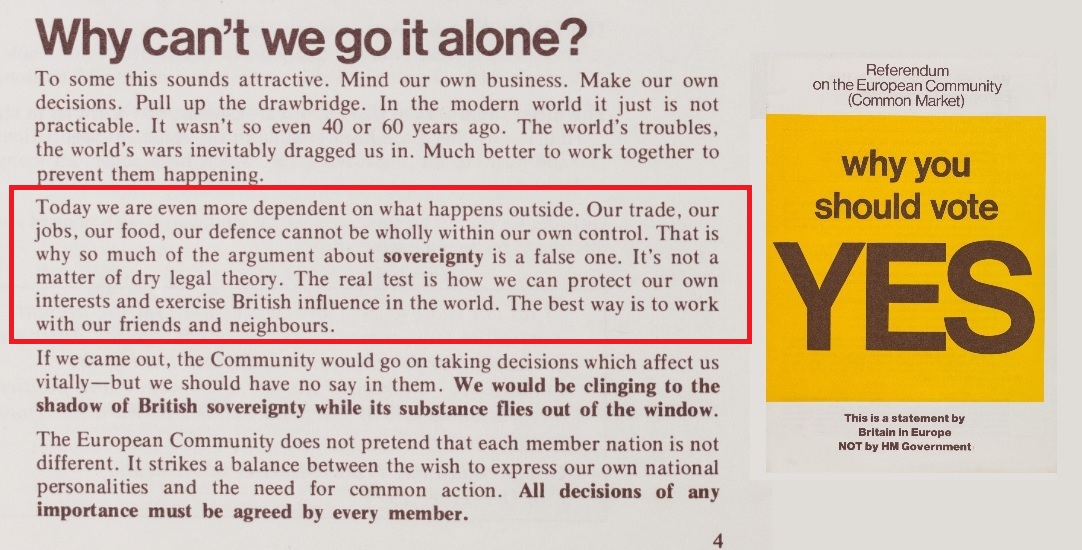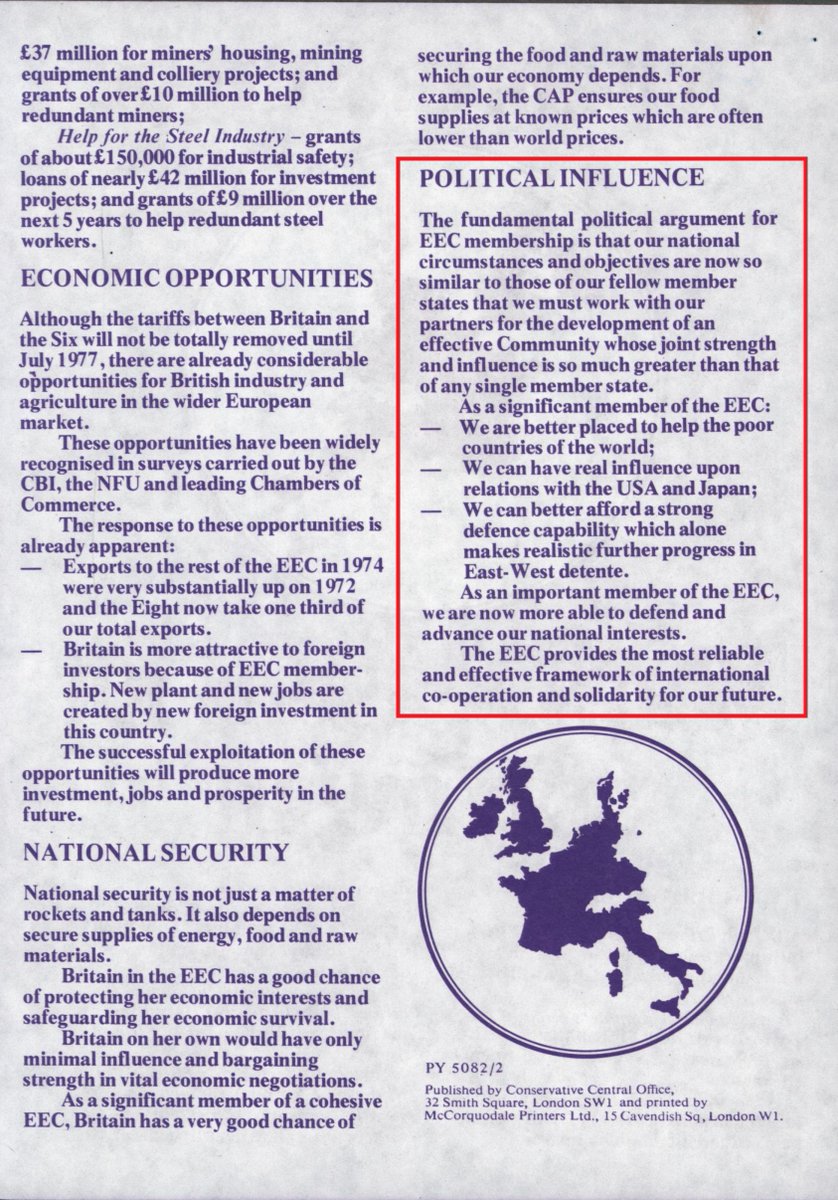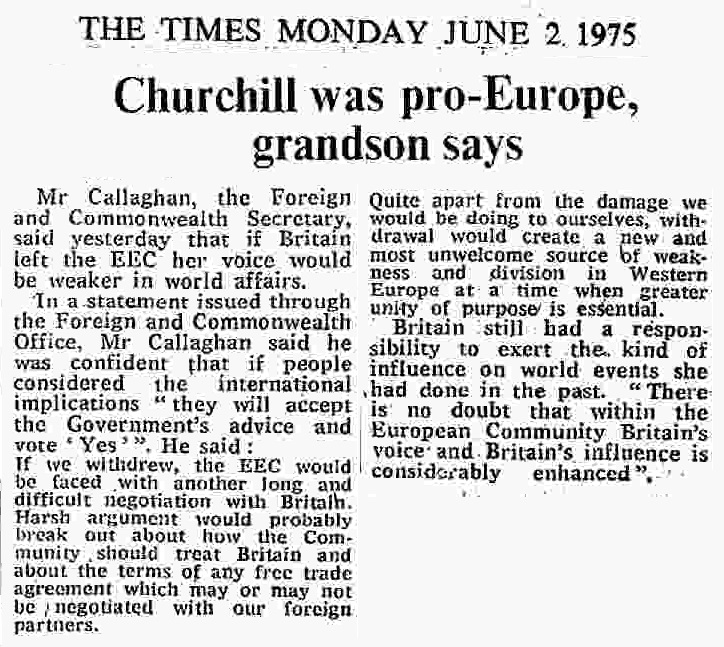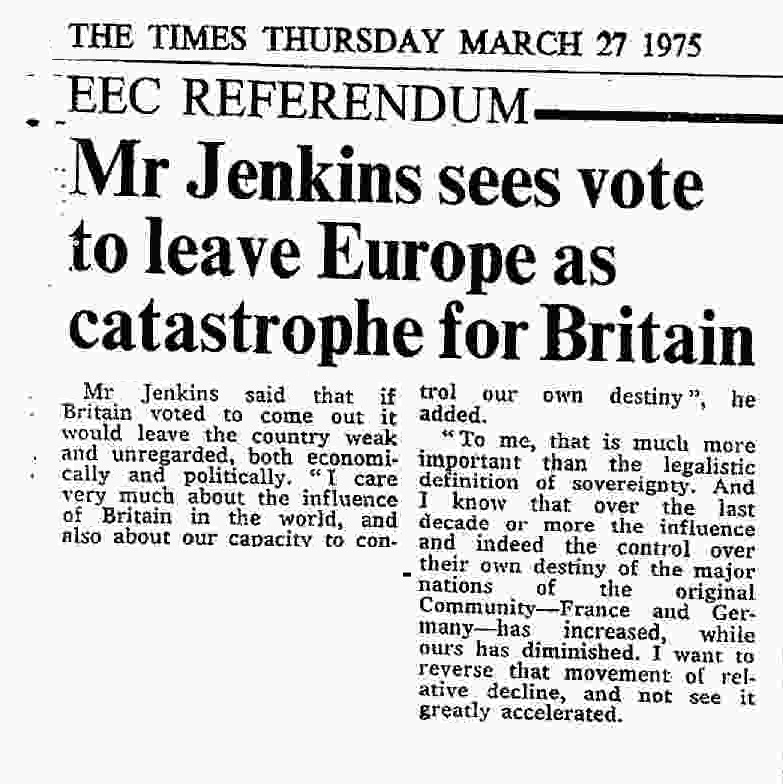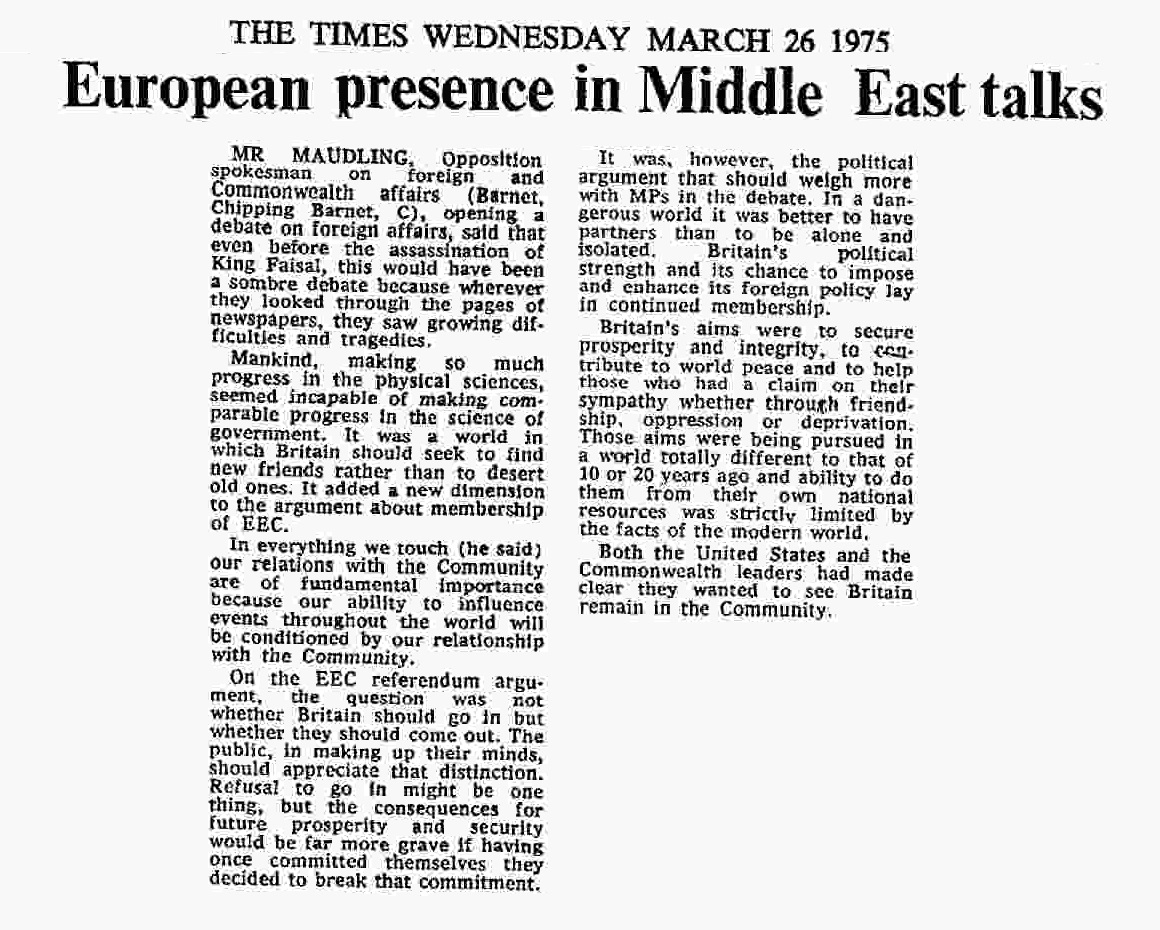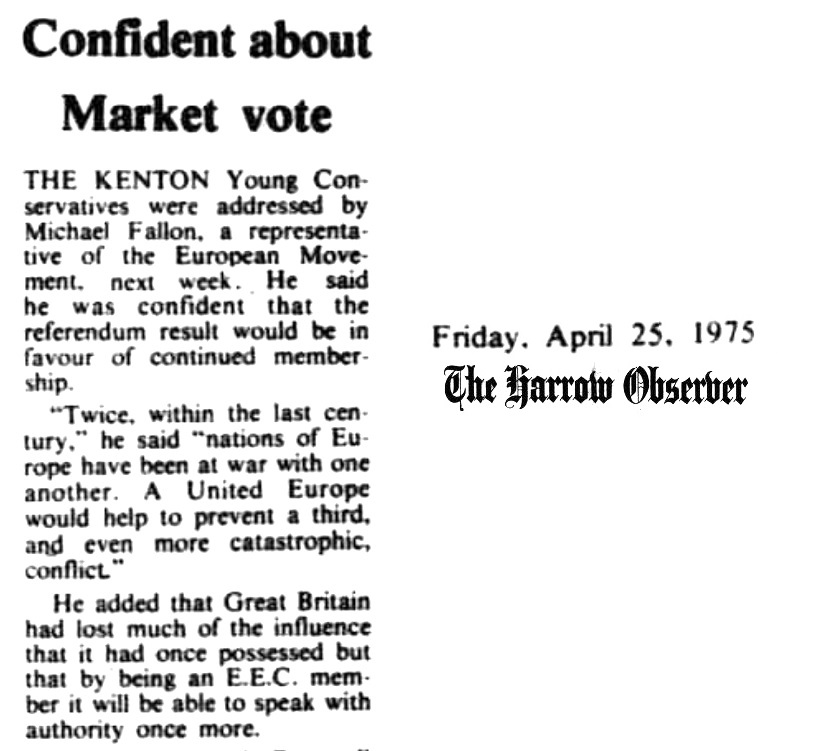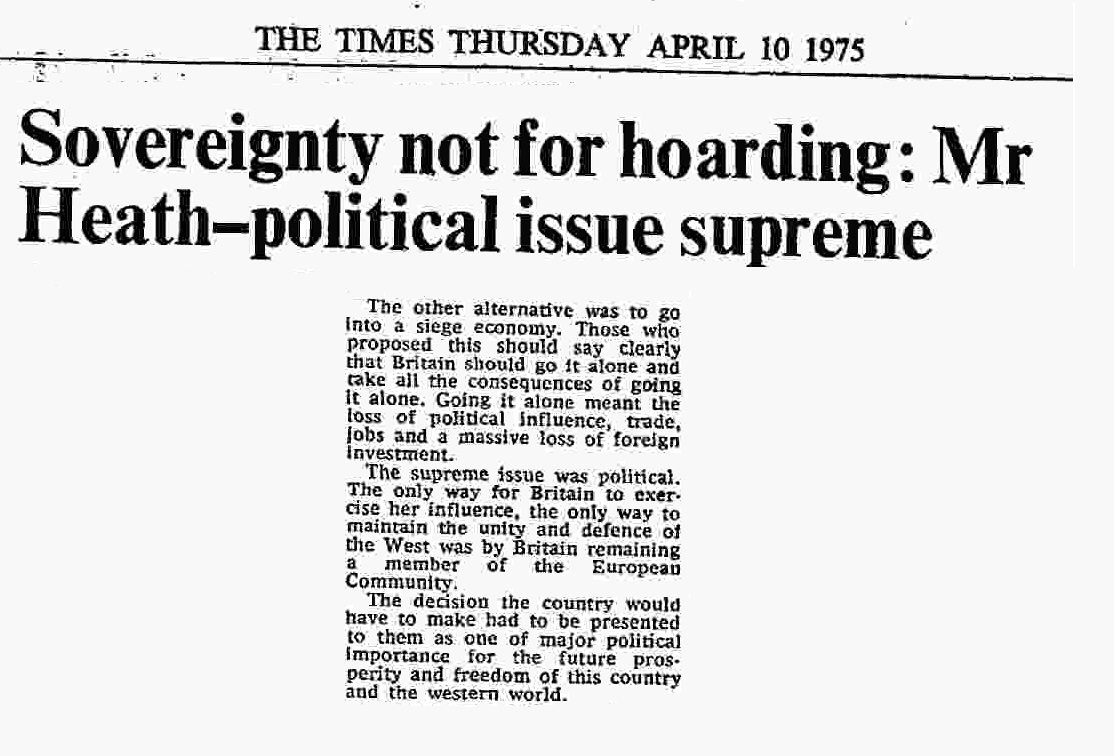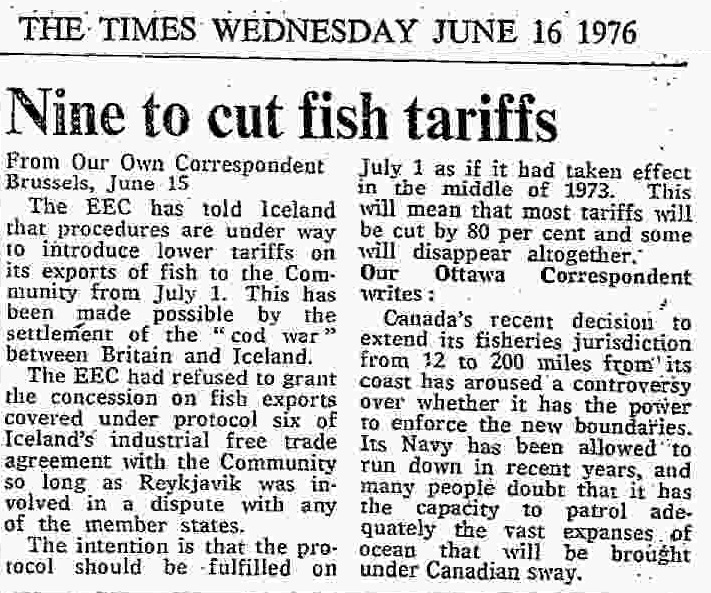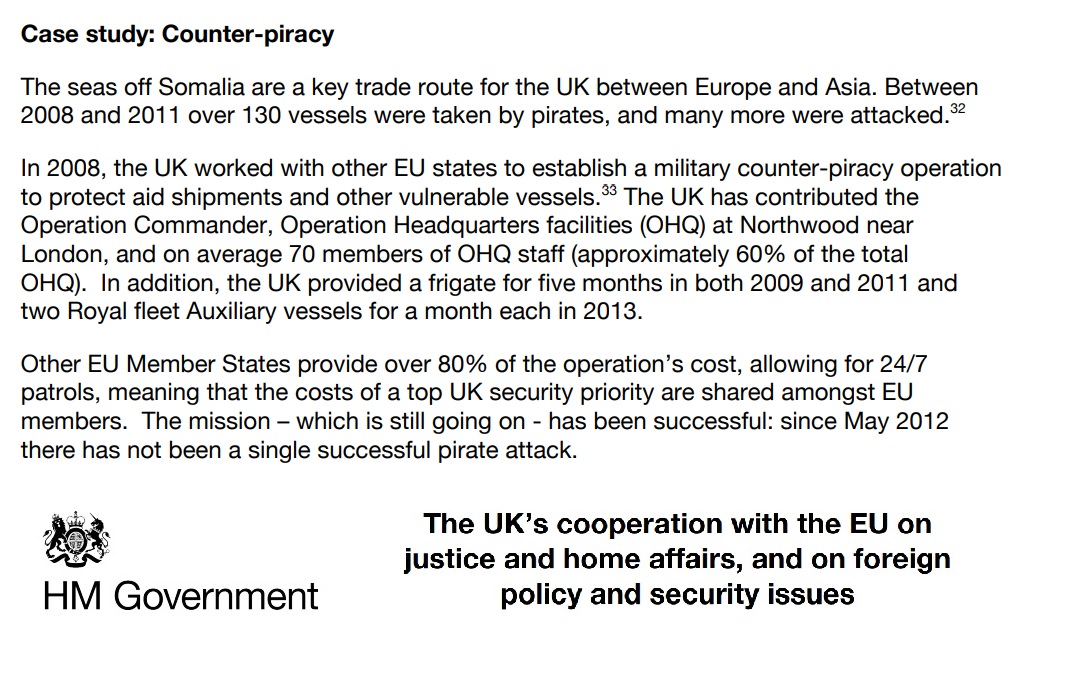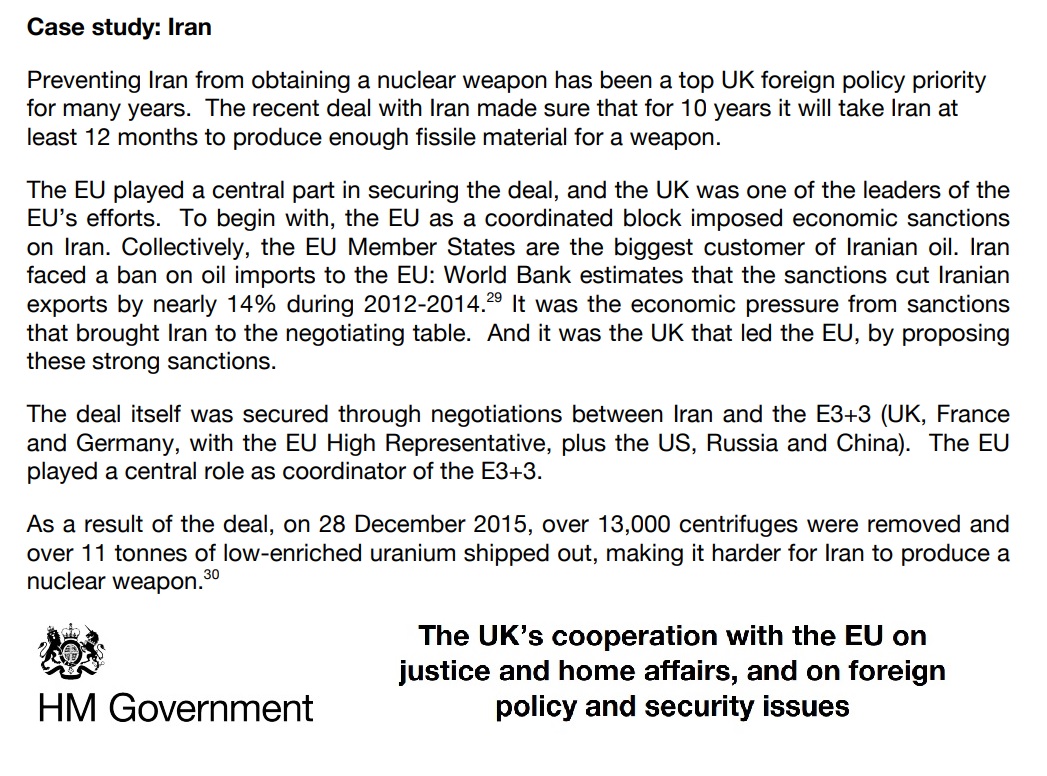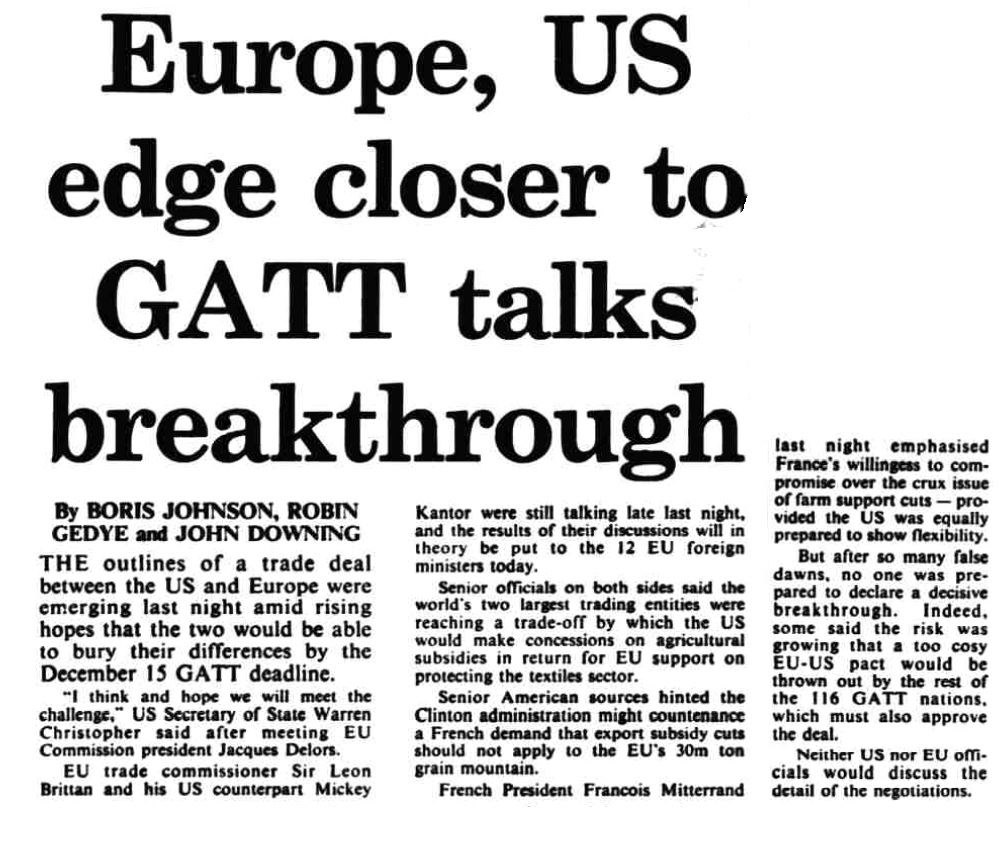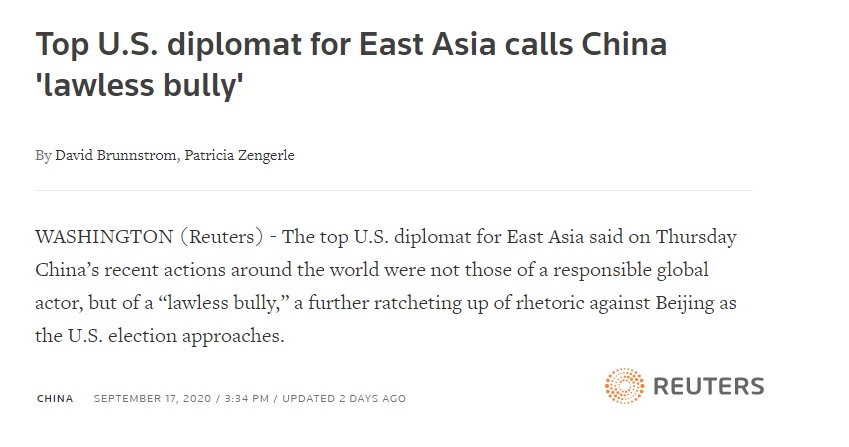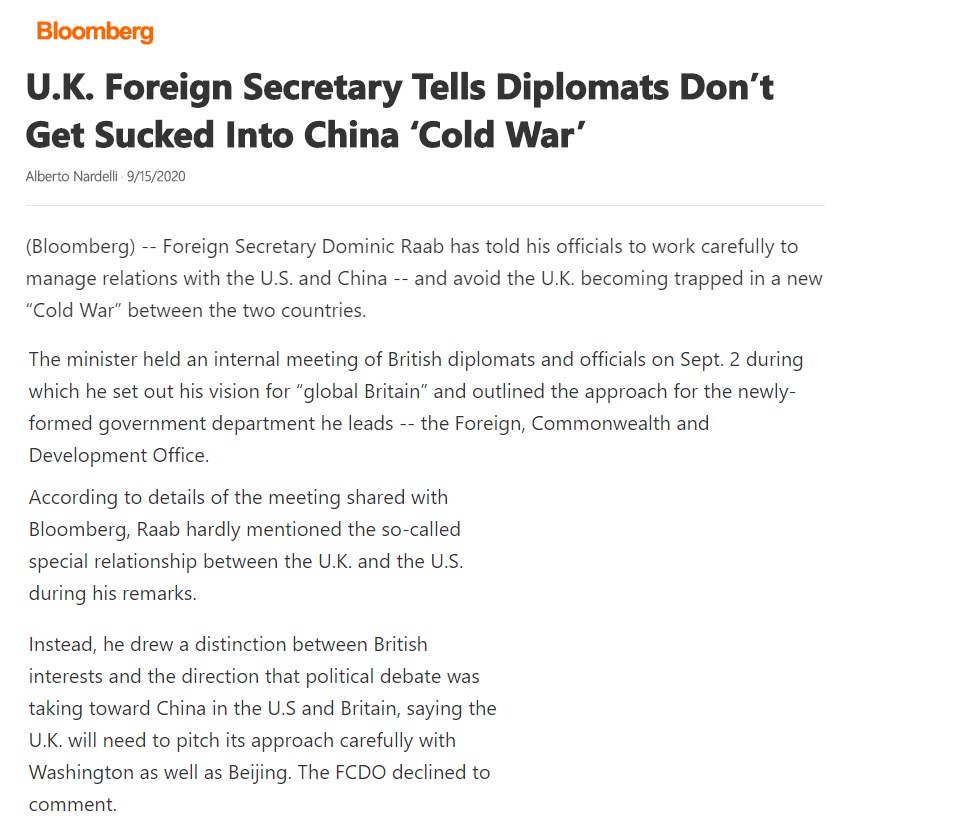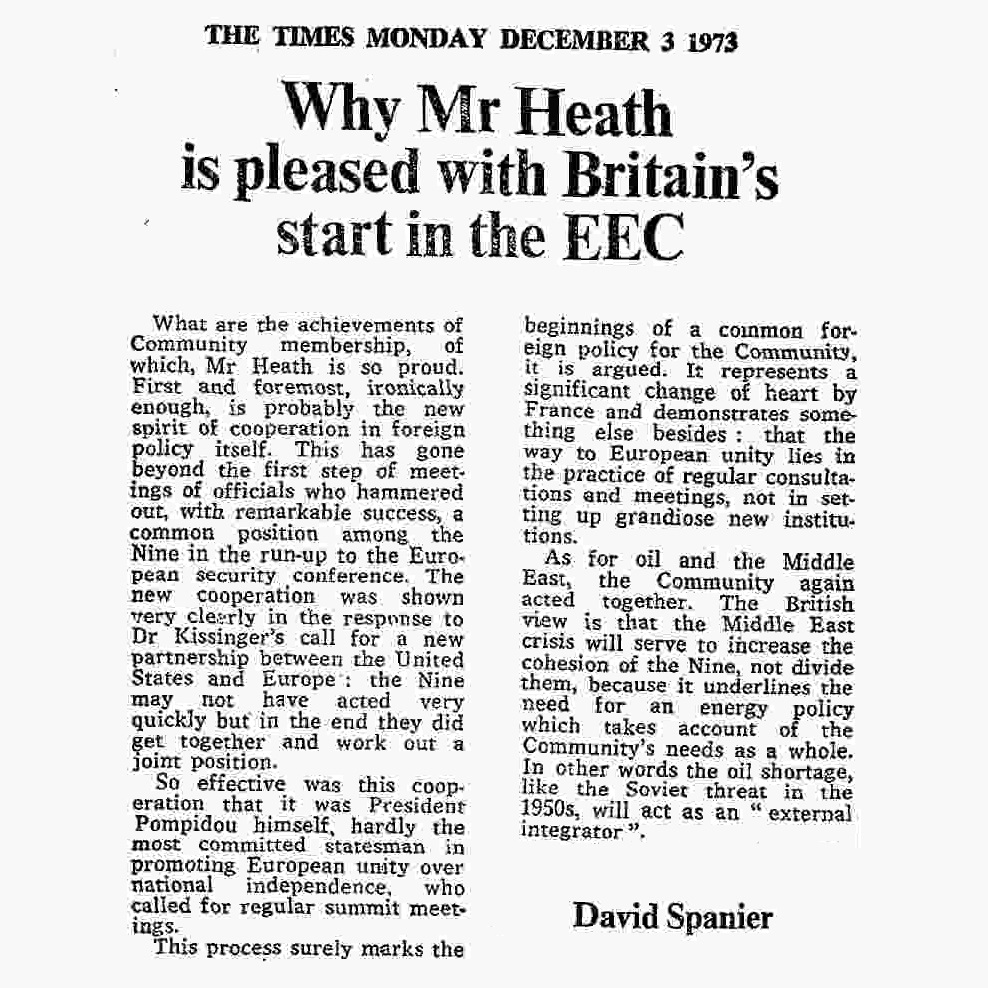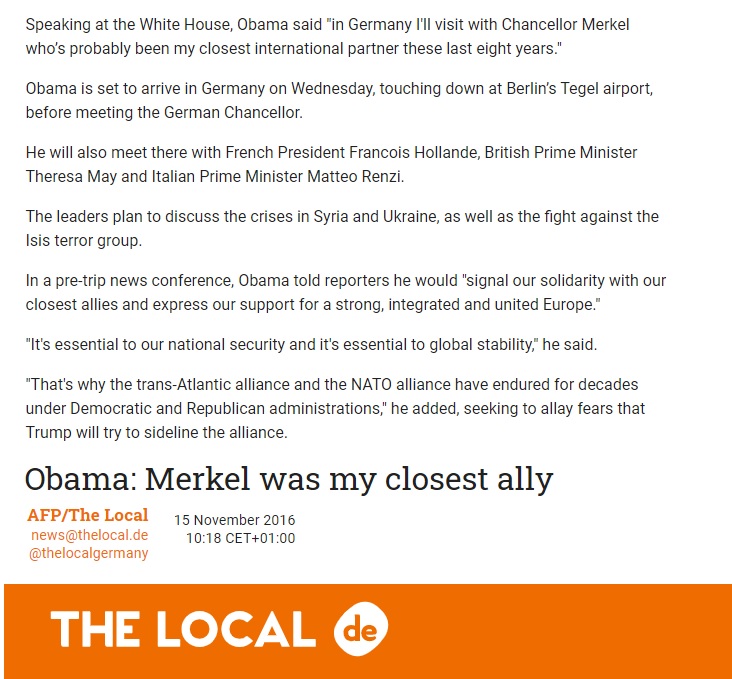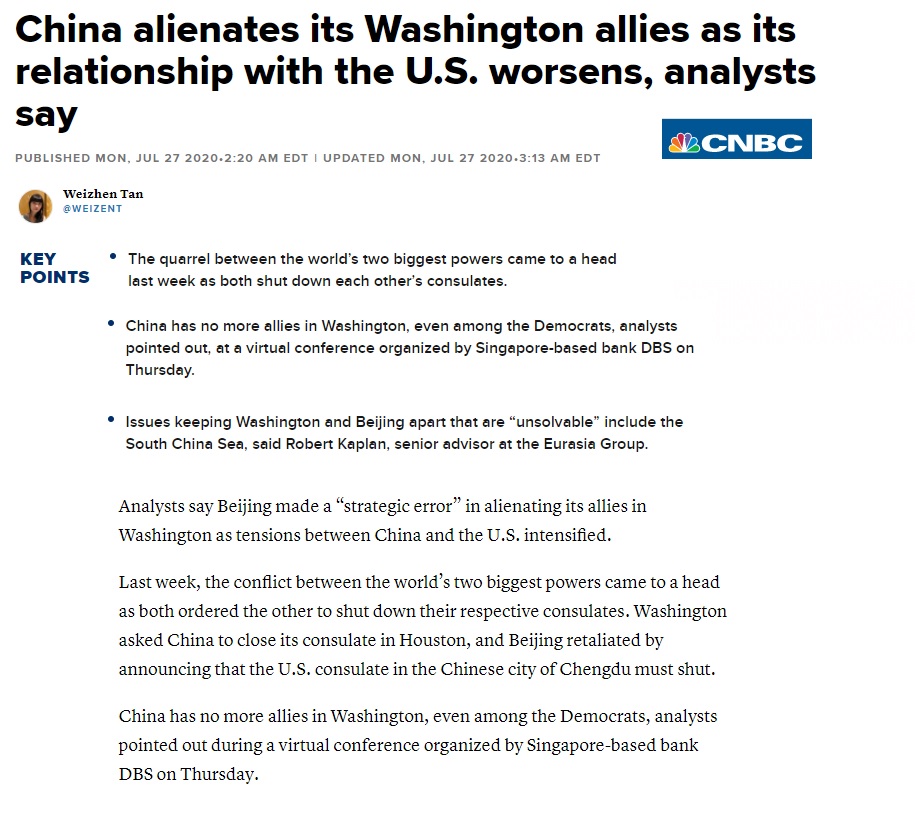1. I think some people are about to find out that we didn’t join the Common Market for the trade. (Thread)
2. The truth is, as the curtain on the British Empire began to fall, the UK were not quite ready to step down from the main stage of world affairs.
3. The neutrality of some of the EFTA and Commonwealth countries meant that neither could provide a solution to our loss of influence, and it was felt that the economic draw of superpowers could further undermine it.
4. Harold Macmillan wanted to create a third force in the world, but his vision didn’t end there. He envisaged a grand Western alliance.
5. He was able to sell this vision to JFK who laid it out in his Interdependence speech of 1962: “We do not regard a strong and united Europe as a rival, but a partner”.
6. And when the UK’s application was vetoed, Macmillan was clearly frustrated that his attempts to “strengthen Western Europe in a way that would spread out all over the free world” had come to an end.
7. By the time the UK applied again, it was Harold Wilson who would declare “Together we can ensure that Europe plays in world affairs the part which the Europe of today is not at present playing”.
8. Increasing political influence in wold affairs is one of the biggest arguments put forward for joining. It can be found in the arguments of Peter Kirk, and the maiden speech of Winston Churchill’s grandson.
9. George Brown, Duncan Sandys, Michael Howard, Dick Taverne, and Christopher Chataway all made the political influence argument.
10. Not to mention the Prime Minister who promoted the future political benefits of the Common Market throughout the negotiation.
There was no reason to make this all about trade.
There was no reason to make this all about trade.
11. The government& #39;s 1971 Whitepaper stipulated that the six intended to develop common action and common policies, not only in economic affairs, but also in matters of foreign policy.
12. And with the signature still wet and eleven months before the treaty was ratified, the UK was already involved in the foreign policy coordination.
13. With good reason, because the Soviet Union has asked to come to the European table and the Conference on Security and Co-operation in Europe wasn’t far off.
14. Eleven months later, the UK were not only aware of the benefits of the D’Avignon Committee, but they spoke of the additional influence they believed they had experienced through simply being associated with the European Community.
16. And the Conservative manifesto of the following year describes how the Community has provided a “new dimension and a new voice in world affairs”.
17. When Labour came to power, they declared that the European Community had, in effect, become a main ‘driving force’ at the Conference on Security and Co-operation in Europe.
18. Consequently, at the end of 1974 the nine countries agree to take foreign policy coordination further.
19. And the government open up the referendum with a White paper reiterating Harold Wilson’s statement of 1967.
It& #39;s about the influence it could, and should, exert.
It& #39;s about the influence it could, and should, exert.
20. Stating that if we leave we would no longer participate in the Communities ‘political co-ordination machinery’ which would make it more difficult to pursue British interests.
22. Margaret Thatcher believed that the European Community was going to be working in much closer harmony on the great world affairs.
23. Jeremy Thorpe believed that the British people should apply a test on how Britain could exert its influence, when deciding how to vote.
25. And the argument can be found being made by James Callaghan, Roy Jenkins, Reginald Maudling, and a very young Conservative by the name of Michael Fallon.
26. Edward Heath makes the argument that this & #39;greatest political grouping in the world& #39; is how the UK can be effective in a world of superpowers.
27. And Edward Heath went as far as to refer to the political influence argument as the “Supreme issue”. Selling the European Community, not as a trade bloc, but a power bloc.
28. & #39;Power bloc& #39; isn’t my term, it’s the one used by Roy Lynk, who, along with Patt Betts, managed to understand that the ‘Common Market’ was about more than just trade, and after just 8 years of being told it was about more than just trade through every medium known to mankind.
29. It wasn’t the trade of a trade bloc we joined for but the power of a power bloc, and leaving the EU means, inevitably, we have given up some defensive power.
32. And some initiatives are probably now going to be in the hands of the USA, Russia, China, France, and Germany.
34. Not to mention, with the loss of influence that comes with leaving the EU, breaking international law only further undermines the UK& #39;s ability to be involved in a war of words
36. And while the Atlantic Alliance may have taken a hit in recent years, a change this year could see the partnership getting back on track.
37. Especially if things continue to escalate, because there is a natural partner in this, and it is not the UK.
38. When the UK joined the Common Market it was to increase our influence in an Atlantic partnership, and one of the results of a vote to leave was that we would be losing influence and abandoning that possible Atlantic partnership.
39. Circumstances in the world may bring about a resurgence of that partnership, but we have opted to no longer take centre stage.
40. This is a result of the referendum, and it& #39;s one of the results the winners are going to have to learn to accept.
\End
\End

 Read on Twitter
Read on Twitter
